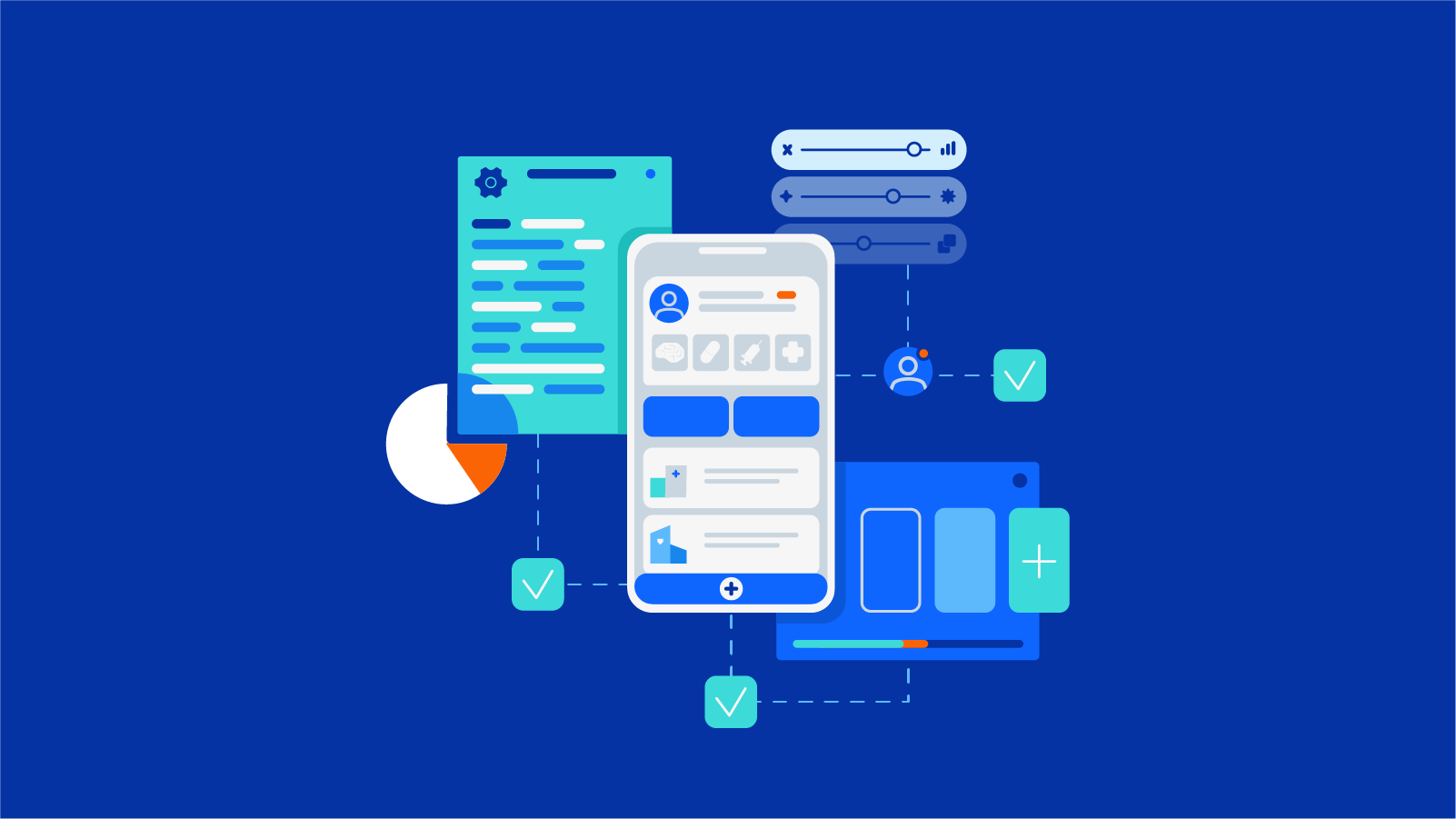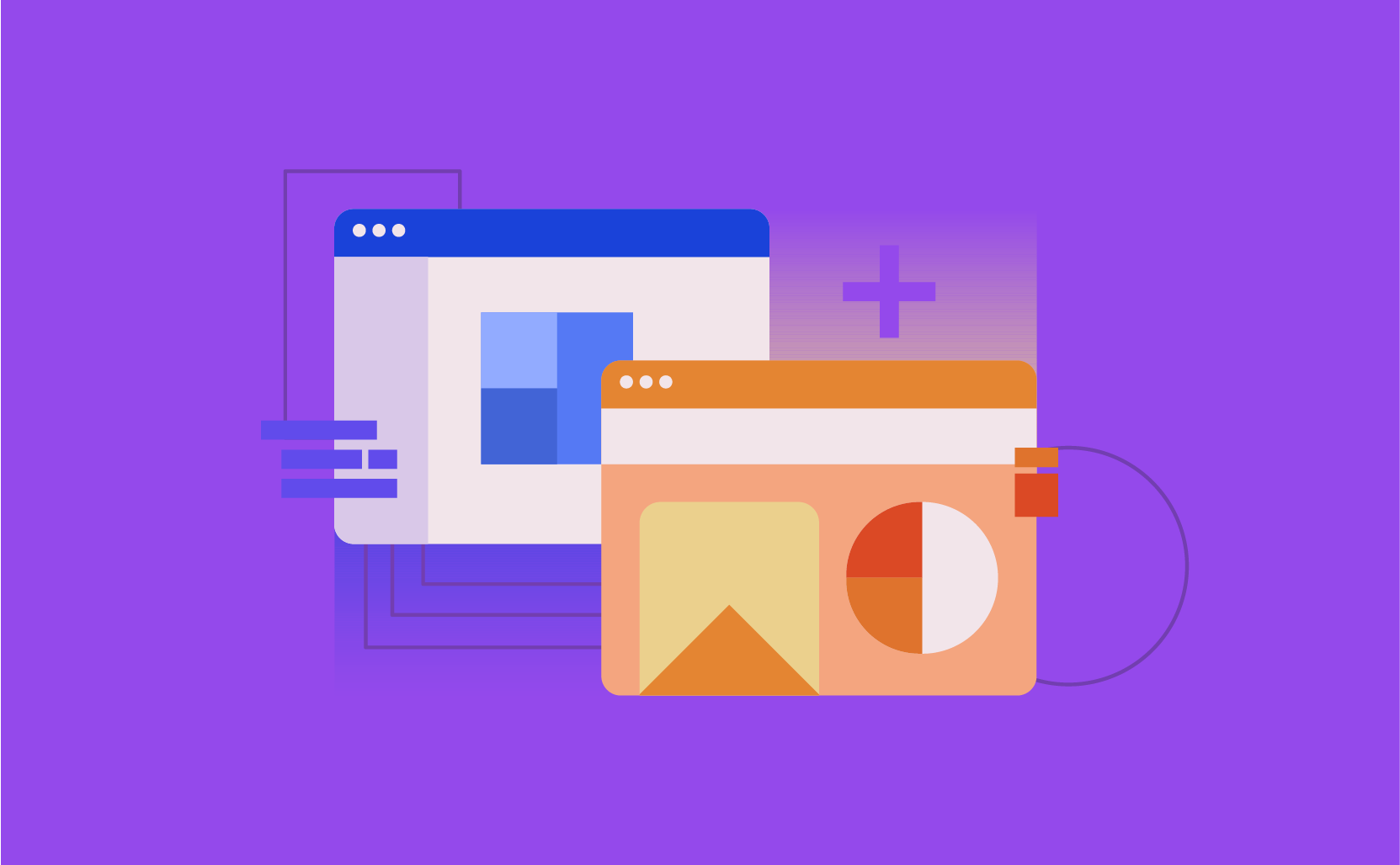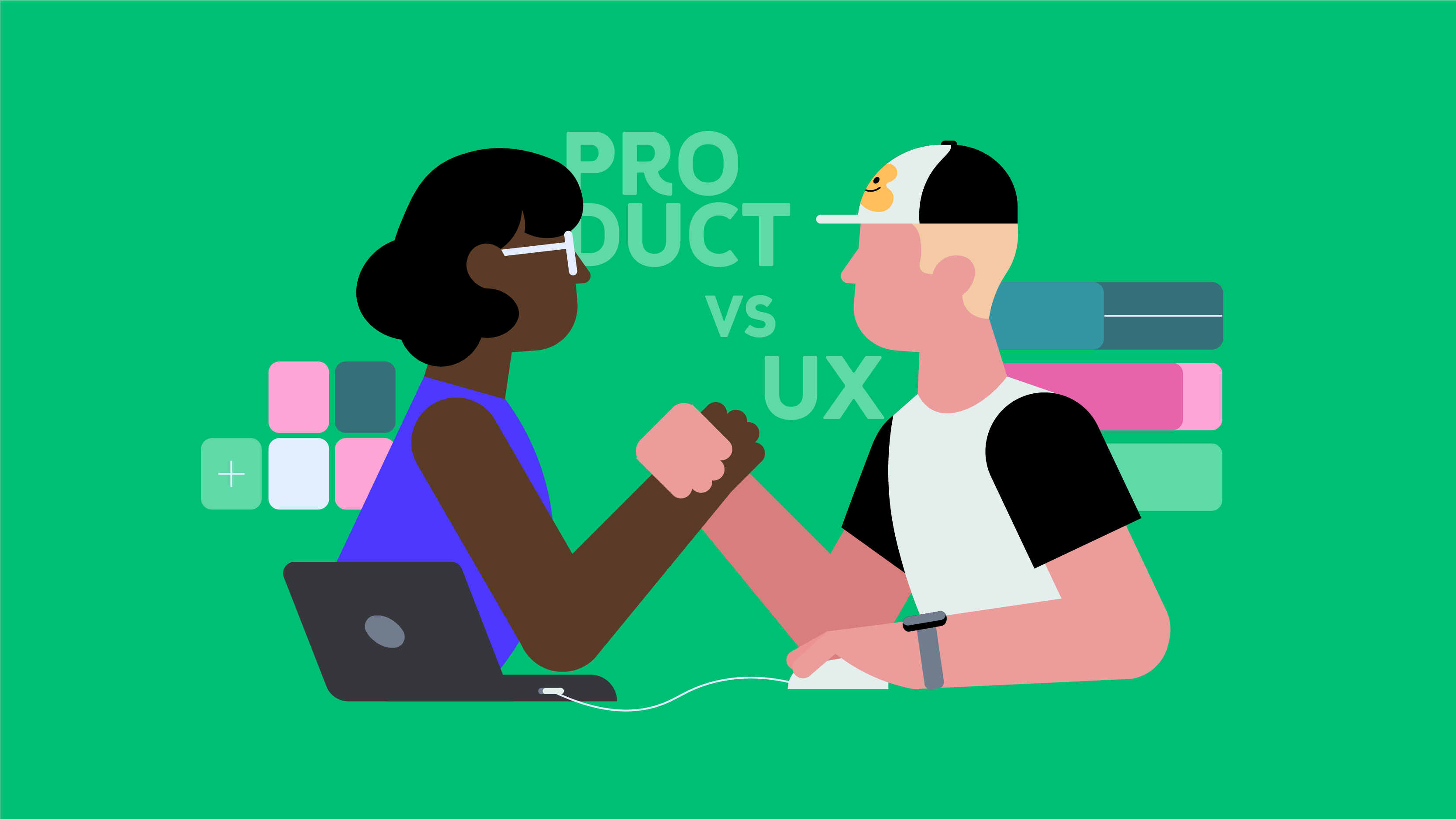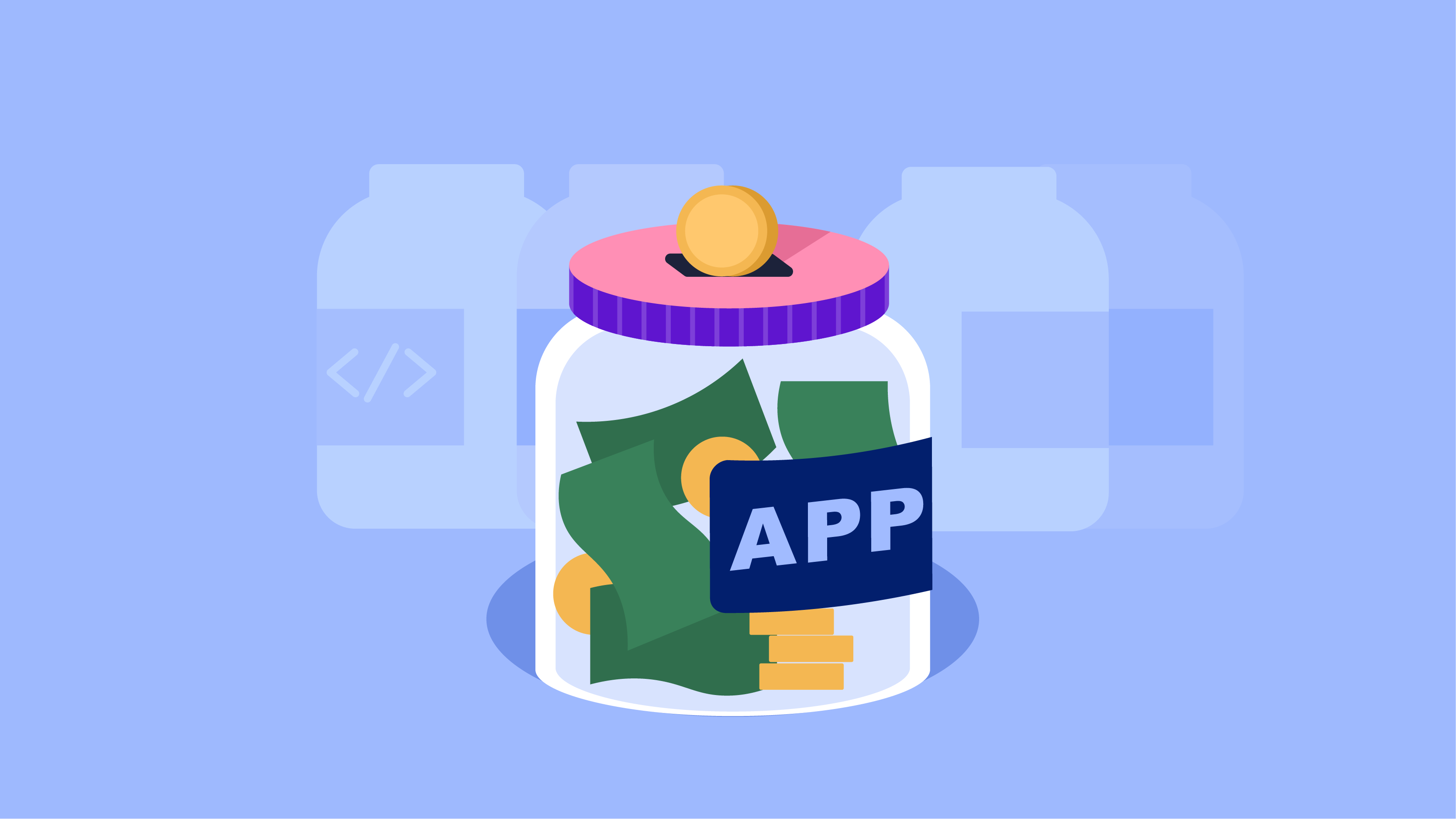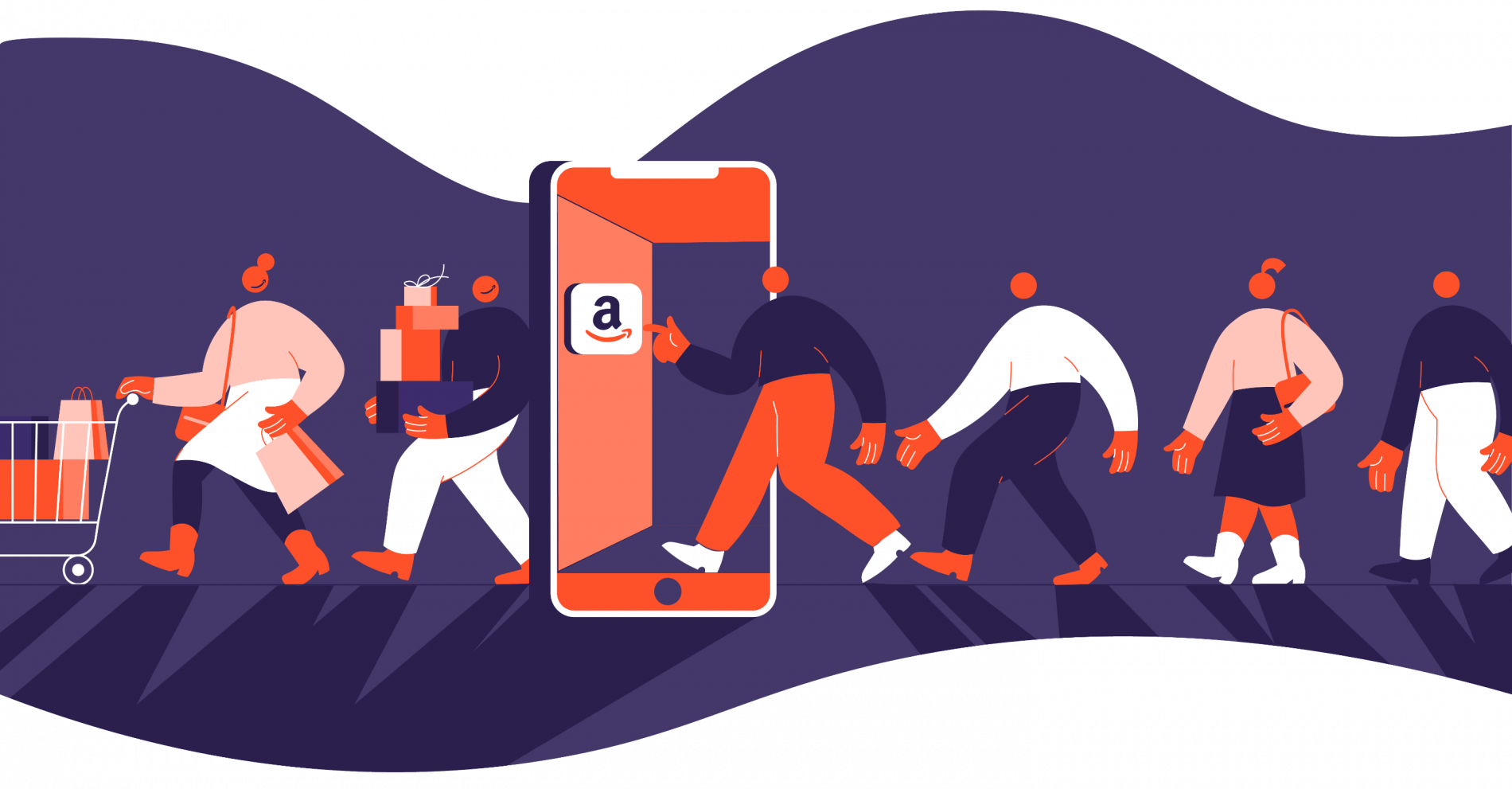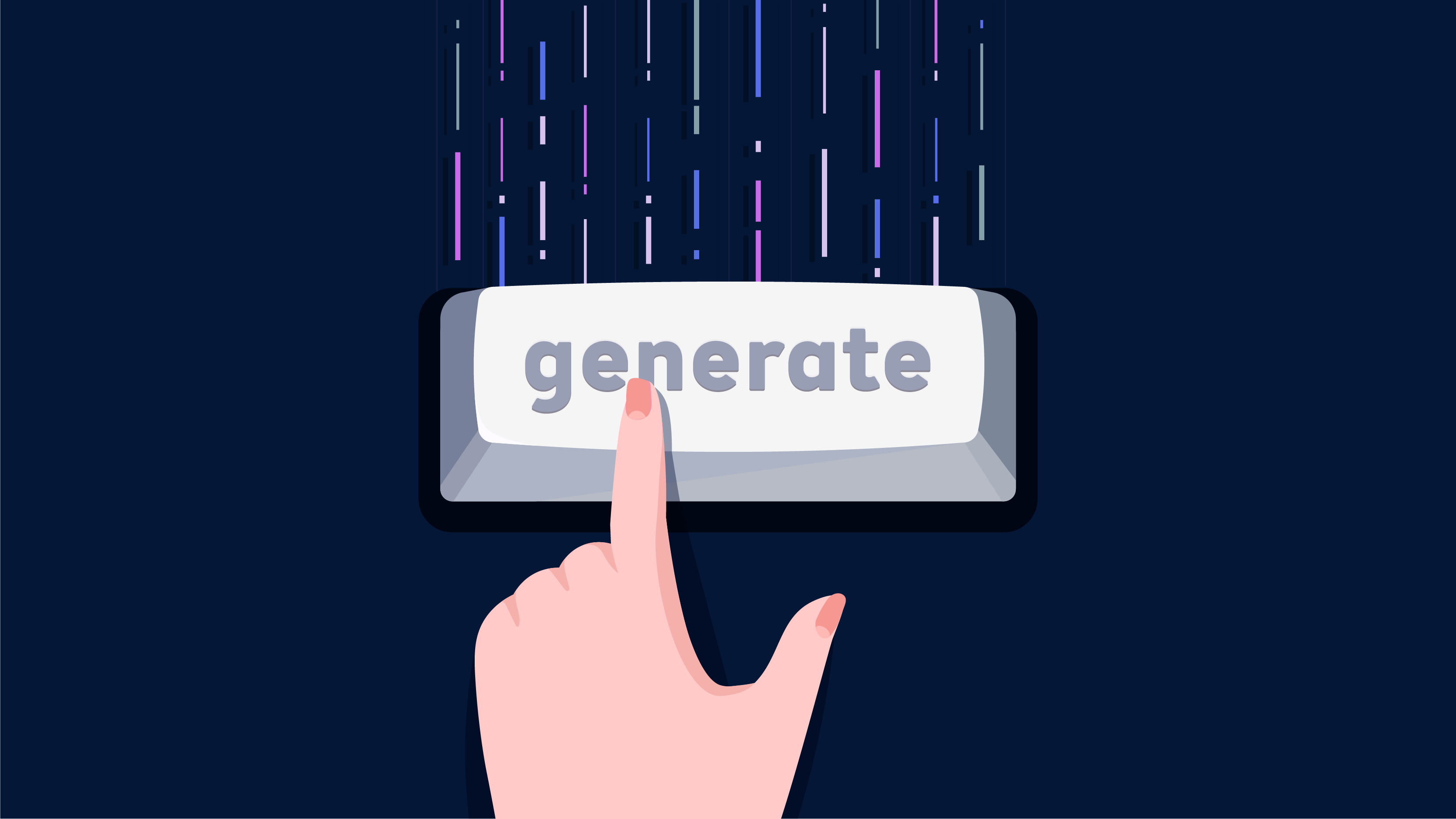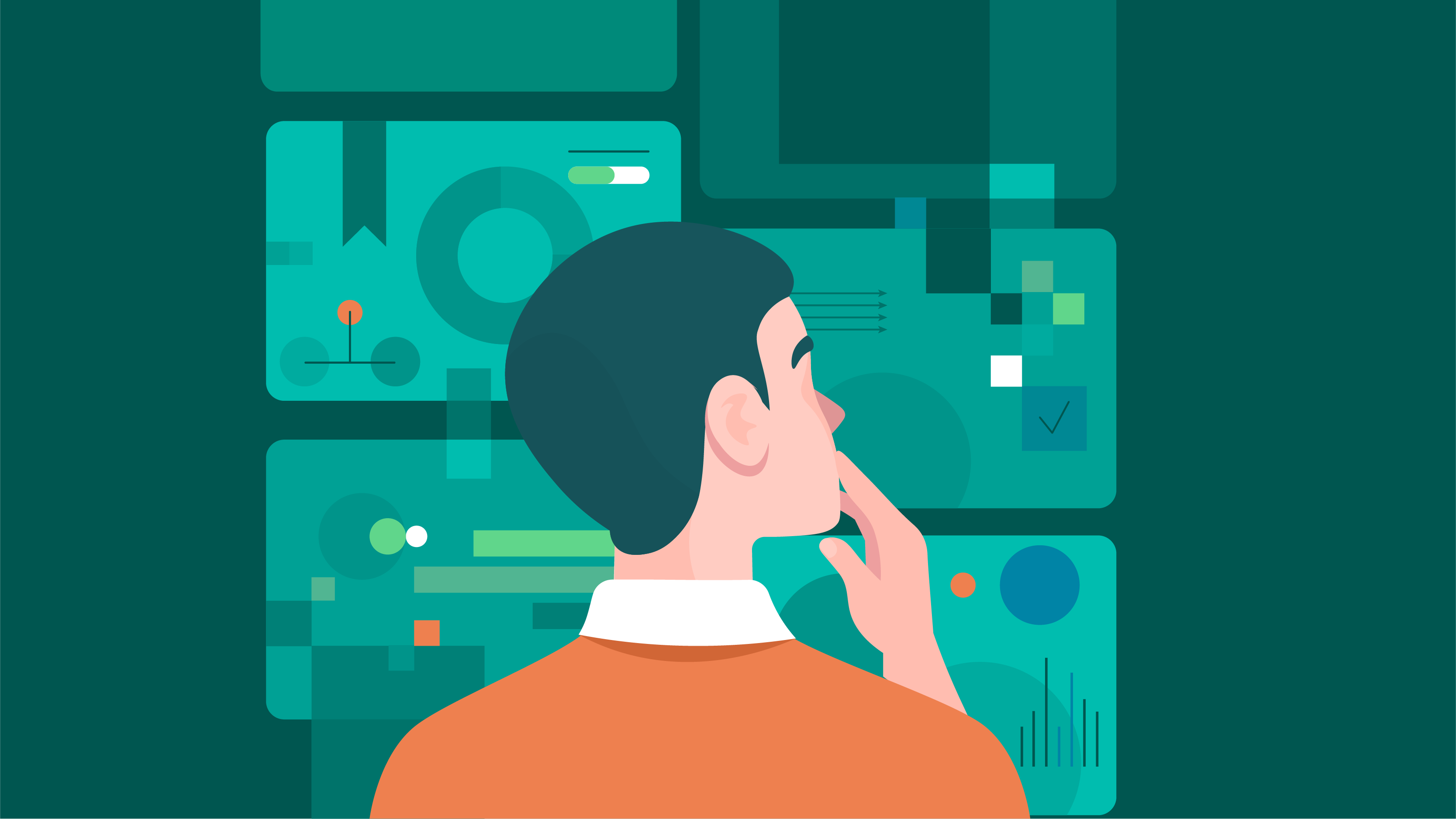Regulatory requirements are a necessity that directly affects the development of any industry and related products. The complexity of healthcare mobile app development regulations, such as HIPAA, GDPR, and FDA standards, are not obstacles to overcome but guidelines that enable developers to create innovative solutions that truly change the quality of patient care.
In this article, we’ll take a better look at regulatory compliance and explore how it affects every aspect of building these important applications. We will also delve into the vital role that health compliance plays in shaping the decision-making process.
What Is Regulatory Compliance in Healthcare Application Development?
Regulatory compliance management in healthcare app development refers to the process of ensuring that healthcare-related mobile apps comply with various rules, regulations, and standards. All these rules are established by governmental authorities and industry bodies within the country, state, or specific region (as is the case in the European Union).
Regulatory requirements perform several essential functions at once. First of all, the regulations themselves and government enforcement are important to ensure the safety, security, and privacy of patient data.
Secondly, it significantly affects the efficiency of medical applications, their evolution, and improvement. Healthcare app companies must navigate a complex regulatory landscape that can vary from one region or country to another. They need to meet numerous regulatory requirements and document compliance with laws such as the Health Insurance Portability and Accountability Act (HIPAA) in the United States and the General Data Protection Regulation (GDPR) in Europe.
These regulations set strict guidelines for data privacy, security, and ethical use of healthcare data. And this, in turn, forces developers to create more modern and sufficient solutions.
What does the process of regulatory compliance in healthcare app development involve?
Of course, each company comes to complete compliance in its own way. However, there are several main points that every team should take into account during healthcare mobile app development. Let’s take a closer look at them.
1. Carrying out a comprehensive regulatory analysis
Compliance with healthcare regulations begins with a thorough regulatory analysis. Here is how this process typically unfolds:
- Identifying app classification. Determine whether the app falls under the category of healthcare app or medical. We will talk about how to understand the difference between them a little bit later. For now, you just have to know that it is crucial, as different regulations apply to each. This also helps to determine the scope of the app’s functionalities and the type of health data it handles.
- Global reach. Identify the regions and countries where you will market your healthcare mobile app. Each region may have distinct healthcare regulations, so it’s essential to consider the global scope of compliance.
- Regulatory framework. Delve deep into the regulatory landscape for healthcare or medical apps in the target regions. Familiarize your team with the specific laws, guidelines, and standards that apply, such as HIPAA, GDPR, or FDA regulations.
- Assess the potential risks associated with the healthcare industry and the application itself. Consider how the app’s use may impact patient safety and data privacy. This Will help determine the level of regulatory scrutiny required.
Also, it is essential to engage legal experts with expertise in healthcare and technology to guide the analysis. They can provide insights into specific requirements and best practices.
2. Involvement of regulatory experts
Integrating regulatory experts into the healthcare mobile app development process is vital for ensuring compliance. Here is how they can contribute:
- Regulatory consultancy. Obviously, you will have to collaborate with regulatory consultants or professionals who specialize in healthcare compliance. They can provide guidance on navigating complex regulations for different healthcare apps and suggest strategies for meeting requirements efficiently.
- Interpretation and translation. Experts can interpret regulatory documents and translate them into actionable steps for the development team. Basically, they are your translators who ensure that everyone understands the legal language and its implications.
- Communication with authorities. Regulatory experts often act as intermediaries between your development team and regulatory authorities. They can engage with agencies like the FDA or relevant national authorities to seek clarifications and approvals.
Experts can help to prepare your healthcare mobile app for any changes and audits.
3. Implementing robust data protection and privacy measures
Protecting patient data and ensuring privacy is central to healthcare mobile app compliance. We will discuss this issue in more detail later. For now, let’s see what the security measures implementation process includes.
- Secure data storage. Design the app to store and transmit sensitive health data securely. This involves encryption, access controls, and secure data centers.
- User permission. Your team should create informed consent mechanisms during healthcare mobile app development. This way, users will understand how their data will be used and can provide or withdraw consent as needed.
- Align data protection practices with regulations like HIPAA or GDPR. Ensure that the healthcare app data handling procedures meet or exceed these requirements.
- Define data retention policies. Healthcare regulations often specify how long certain health records must be retained and under what conditions they can be disposed of.
Do not forget about regular audits. Check data security and privacy measures to identify and address vulnerabilities. These audits help maintain compliance over time, whether it is healthcare or medical mobile app development.
4. Receiving information about new regulatory changes
Staying informed about evolving regulatory changes is essential for healthcare providers. Here is how you can remain up-to-date.
- Subscribe to regulatory news sources and newsletters. They provide updates on regulatory compliance for healthcare apps. Also, authorities often release official statements and documents outlining changes.
- Maintain relationships with legal partners who specialize in healthcare mobile app compliance. They can alert you to regulatory updates and advise on their implications.
- Provide ongoing training to your development and compliance teams to ensure they understand new regulations and their impact on healthcare apps, development, and maintenance processes.
- Actively engage with regulatory authorities to seek guidance on compliance with new regulations. They often share guidelines and offer consultation services for healthcare app development.
The compliance process is dynamic and ongoing. It requires constant attention to adapt to new regulatory requirements and changes. Ensure your team regularly reviews and updates your compliance strategies to ensure that your healthcare app remains legally sound and aligned with evolving standards.
Why is this important for healthcare mobile app development?
First of all, it is all about legal obligations and avoiding losing money. Many regions and countries have strict laws governing healthcare data, and non-compliance can result in huge penalties and fines. Adhering to regulations like HIPAA or GDPR helps app developers avoid legal issues.
And again, it is the way to provide proper patient data protection. Healthcare apps often handle sensitive and personal patient data. Regulatory compliance ensures that this data is handled with the utmost care and security, reducing the risk of data breaches or unauthorized access.
Secondly, compliance with healthcare regulations builds trust among patients and healthcare professionals. Users are more likely to use healthcare app that demonstrates a commitment to data privacy and security. Moreover, such compliance often includes guidelines for the quality and safety of healthcare services provided through apps. Meeting these standards ensures that the healthcare mobile app contributes positively to patient care.
Failing to comply with healthcare regulations can tarnish a company’s reputation. Patients and healthcare provider are more likely to choose healthcare app developed by companies known for their commitment to compliance. In terms of healthcare mobile app development, it may also help to get global market access.
And finally, it is a matter of ethical responsibility to safeguard patient data and ensure the safe and responsible use of healthcare app technology.
So, basically, compliance with regulatory requirements is critical to creating a healthcare app that can protect patient data and support high standards of patient care.
The Difference Between Healthcare Apps and Medical Apps
The terms ‘healthcare app’ and ‘medical app’ are often used interchangeably, but there are distinct differences between them. Let’s take a closer look at these terms.
Healthcare Apps | Medical Apps |
Broad scope Healthcare apps have a broader scope and encompass a wide range of general health and wellness applications. These apps may address fitness, nutrition, mental health, lifestyle management, and more. They aim to promote overall well-being and healthy living. | Narrow focus Medical app development has a narrower focus. Such applications are specifically designed to assist healthcare professionals, patients, and individuals with medical conditions. They are directly related to the diagnosis, treatment, monitoring, or management of medical issues. |
General health and lifestyle Healthcare app is typically designed for the general population, focusing on maintaining a healthy lifestyle, preventing illness, and managing common health conditions. It may include features for tracking exercise, diet, sleep, stress, and other lifestyle factors. | Complex clinical and diagnostic functions Medical app development is dedicated to clinical purposes, including diagnostics, monitoring vital signs, managing chronic diseases, and providing treatment recommendations. They may connect with medical devices to collect and transmit health data. |
Client-oriented Healthcare app is mostly client-oriented, meaning it targets the general public. Users can download and use apps to proactively manage their health, and healthcare professionals are not always directly involved. | Healthcare professional-oriented Medical mobile app development focuses on the needs of healthcare professionals, such as doctors, nurses, or pharmacists. It often supports medical decision-making and patient care. |
Less stringent regulations While healthcare apps may still need to comply with privacy and data protection regulations (such as GDPR), they often face less stringent regulatory oversight than medical apps. | Stringent regulations Medical app development is subject to rigorous regulatory requirements, especially if the application is classified as a ‘medical device.’ Regulations like the U.S. FDA’s guidance for mobile medical apps set standards for their safety and effectiveness. |
While both healthcare and medical applications contribute to health and wellness, healthcare apps are generally broader in scope, aimed at the general public, and focus on lifestyle and preventive health measures. In contrast, medical app development has a narrower focus, may involve healthcare professionals, and are often subject to stricter regulatory standards due to their direct involvement in medical diagnosis and treatment.
Regulatory compliance for both healthcare apps and medical apps
Let’s compare the regulatory compliance for medical and healthcare apps.
Healthcare Apps | Medical Apps |
Privacy and data protection Every healthcare app needs to adhere to data protection regulations, such as the Health Insurance Portability and Accountability Act (HIPAA) in the United States. HIPAA ensures the security and privacy of patients’ health information. Compliance with data protection laws is essential for apps handling sensitive health data. | Clinical validation Unlike healthcare app, medical one often need to provide clinical evidence to demonstrate safety and effectiveness. This may involve clinical trials, studies, and validation by healthcare professionals. The level of evidence required depends on the app’s classification. |
Security standards Healthcare apps must implement robust security measures to protect users’ data. This includes encryption, secure authentication, and safeguards against data breaches. Compliance with industry standards and security certifications is often expected. | Quality management systems Developers of medical apps must establish and maintain quality management systems (QMS) to ensure consistent product quality. QMS standards, such as ISO 13485, are commonly used in developing medical devices. This does not apply to healthcare app. |
FDA Regulation (if applicable) Your healthcare app may fall under the jurisdiction of the U.S. Food and Drug Administration (FDA), especially if it provides functions related to medical devices. | FDA Regulation The FDA also regulates mobile medical apps and wearable health tech to ensure their safety and effectiveness. In contrast with the healthcare mobile app, the medical app is classified by the U.S. FDA based on its intended use and risk. It is categorized into Class I, II, or III, with increasing levels of regulatory scrutiny. Class II and III medical apps require pre-market clearance or approval by the FDA. |
Interoperability standards If a healthcare mobile app needs to communicate with other healthcare systems or electronic health records (EHR), compliance with interoperability standards, such as Fast Healthcare Interoperability Resources (FHIR), may be required to ensure seamless data exchange. | Good manufacturing practices (GMP) If the medical app is associated with manufacturing processes, it should follow Good Manufacturing Practices (GMP) guidelines. These practices ensure the safety and quality of medical products. |
Labeling and instructions Medical apps must provide accurate and clear labeling, instructions, and user guides. Users, including healthcare professionals, need to understand how to properly use the app. | |
International regulations If the app is intended for global markets, it must comply with international regulations, including the European Union’s Medical Device Regulation (MDR) and In-Vitro Diagnostic Regulation (IVDR). |
As you can see, there are much fewer restrictions for healthcare apps than for medical apps. However, it is worth remembering that the regulatory landscape is continually evolving. Developers must stay informed about the specific requirements in their target markets and engage with regulatory authorities to ensure compliance.
How Does Regulatory Compliance Affect Healthcare App Development?
As you already see, regulatory compliance significantly impacts healthcare mobile app development. More specifically, it happens in several ways.
First, we remind you again that health regulations require robust data security. Developers must implement encryption protocols to protect data both in transit and at rest. And this happens precisely during healthcare mobile app development, which affects the process itself and the team’s efforts.
Solutions for secure data storage are critical. Therefore, developers also pay attention to access control. This ensures that only authorized individuals can access confidential patient information.
In addition, working on any healthcare app is about constant documentation and strict reporting. Software developers must keep detailed records of data processing processes and have clear reporting procedures in place in case of a leak. These records are important for demonstrating compliance during audits and investigations.
Moreover, healthcare app development involves allocating separate resources to ensure user privacy. Developers should design applications with mechanisms for obtaining explicit user consent regarding data collection and use. Patients should also have control over their data, including the ability to withdraw consent and request data deletion.
Secondly, regulatory compliance directly affects healthcare app testing and validation processes. Such products must undergo extensive testing to ensure they meet regulatory standards. This includes security testing to identify vulnerabilities, performance testing to assess responsiveness and reliability, and usability testing to ensure usability.
Here are a few more processes in healthcare app development affected by regulatory compliance.
- Audit log. Developers need to separately develop a system of chronological records of interaction with patient data. Such a log provides transparency and accountability by tracking who accessed the data, what they did with it, and when they did it. Developers should include audit log features to comply with regulations and facilitate audit processes.
- Constant monitoring and updating. Healthcare regulations are evolving, and developers need to stay up-to-date. Therefore, they must create a regular monitoring system that will allow monitoring so that the healthcare app remains compatible when new rules are introduced or existing ones are changed. This process also requires developers to adapt app features and methods to meet changing legal requirements.
- Allocation of resources. Achieving regulatory compliance during healthcare app development requires additional resources in terms of time and budget. Developers should allocate resources for compliance activities such as security audits, compliance audits, training, and legal advice. Ongoing maintenance and updates to maintain compliance also require resource allocation.
- Design. This is a very important component of healthcare app development. Professional and high-quality design is about accessibility and adaptability, which are also regulatory requirements.
Also, developers must consider the legal and ethical aspects of healthcare mobile app development. This includes understanding the potential liabilities of a particular technology and healthcare app tech stack.
In case the healthcare app provides medical diagnoses, advice, or treatment recommendations, the team must add the process of clinical validation to the development plan. This process involves collaborating with medical professionals and conducting clinical trials to ensure the app’s medical functionalities’ accuracy, safety, and effectiveness.
Data Security Requirements in Detail
Previously, compliance was a manual and time-consuming process. With the advancement of technology, there are now many useful tools for any healthcare app to help keep your business compliant with data collection.
This could be, for example, intelligent data discovery that identifies all the data stored in an organization and consolidates it in one place. Also, a popular practice in healthcare mobile application development is the implementation of advanced analytics, which helps to identify patterns that would otherwise remain unnoticed.
All these efforts must be adapted to the requirements of certain documents. Let’s talk about them.
Essential documents in healthcare app development
In order to successfully comply with the regulatory requirements in creating a healthcare mobile app, you need to have a good knowledge of the basic documents that are key to complying with the most stringent requirements. Let’s talk about the main ones and consider a few local regulations.
The first common regulatory act is the Clinical Evaluation Report (CER). It is an integral document that certifies the safety and performance of a medical device or healthcare application. It must be based on clinical data, confirm the product’s intended purpose, and comply with relevant standards.
Another option is a Data Protection Impact Assessment (DPIA). It is crucial, especially when processing sensitive personal data. This risk assessment helps identify and mitigate privacy risks by ensuring your app complies with data protection laws such as the General Data Protection Regulation (GDPR) in Europe.
Now, let’s see what requirements are relevant for different regions.
The USA
Health Insurance Portability and Accountability Act (HIPAA) is a landmark piece of legislation in the healthcare industry in the United States. This regulation requires protecting the privacy and security of patient data. Developers must ensure that the application is HIPAA compliant and that all patient information is securely encrypted and protected.
Another important regulation is the HITECH Act (Health Information Technology for Economic and Clinical Health Act). It was signed into law in 2009 as part of the American Recovery and Reinvestment Act (ARRA). It aims to promote the adoption and meaningful use of health information technology (HIT) and electronic health records (EHRs) in the United States healthcare system.
The Act provides financial incentives to healthcare app providers who demonstrate the meaningful use of certified EHR technology. It also outlines penalties for organizations failing to adequately protect patient health information.
Healthcare app developers also must pay attention to the CCPA (California Consumer Privacy Act). This is a state-level privacy law enacted in California, which came into effect on January 1, 2020.
CCPA provides consumers with the right to know what personal information is being collected about them, the right to access that information, and the right to request its deletion. It also gives healthcare app users the ability to opt out of the sale of their personal information.
And the last example is the NIST (National Institute of Standards and Technology). It is a federal agency within the United States Department of Commerce. Its mission is to promote and maintain measurement standards to enhance economic security and improve the quality of life. NIST develops and publishes standards and guidelines that cover a wide range of industries, including technology and cybersecurity.
NIST is well-known for its Cybersecurity Framework, which provides guidelines for organizations to manage and reduce cybersecurity risk. The framework is widely adopted by both public and private sector entities as a roadmap for enhancing cybersecurity practices.
Also, NIST has developed numerous cybersecurity standards, including the Special Publication 800 series, which covers a wide range of topics from encryption and access control to risk management. Companies use NIST standards to bolster their cybersecurity defenses and meet regulatory requirements.
The European Union
First regulation for healthcare app development in the European Union is GDPR (General Data Protection Regulation). It is a comprehensive data protection regulation that was implemented in 2018. Its primary purpose is to safeguard the privacy and personal data of EU citizens.
GDPR grants individuals greater control over their personal data. It imposes strict rules on how organizations collect, process, and store personal data. This includes requirements for obtaining explicit consent for data processing, notifying individuals of data breaches, and allowing individuals to access, correct, or delete their data.
This document applies not only to organizations within the EU but also to those outside the EU that process the personal data of EU residents in their healthcare app. It has had a significant global impact on data privacy practices.
Another regulation for creating healthcare apps is the NIS Directive (Network and Information Systems Directive). It aims to enhance the overall level of cybersecurity across EU member states. It focuses on improving the security of networks and information systems.
This regulation also requires EU member states to identify critical infrastructure operators and digital service providers. These entities must implement appropriate security measures and report security incidents. It encourages cooperation between member states on cybersecurity issues.
The NIS Directive applies to operators of essential services (such as energy, transportation, healthcare, and financial services) and digital service providers (including online marketplaces, search engines, and cloud computing services) that operate within the EU.
Also, it is important to pay attention to ISO Certifications (ISO 27001, ISO 9001, etc.) when developing any healthcare mobile app. This is a series of international standards designed by the International Organization for Standardization (ISO) to ensure the quality, safety, and efficiency of products, services, and systems across various industries.
Key certifications are:
- ISO 27001. This certification focuses on information security management systems in healthcare mobile application development. It provides a systematic approach to managing sensitive information, ensuring its confidentiality, integrity, and availability.
- ISO 9001. This quality management standard outlines organizations’ requirements to meet customer and regulatory quality requirements and continuously improve their processes and healthcare app functionality.
- ISO 14001. This standard focuses on environmental management systems and helps organizations reduce their environmental impact.
ISO certifications are industry-agnostic and can also be adopted by organizations worldwide. They are often used as benchmarks for quality, security, and environmental management in healthcare mobile app creation.
Canada
Here are some of the most important regulatory documents for creating or operating healthcare mobile app in Canada.
- PIPEDA (Personal Information Protection and Electronic Documents Act). This is Canada’s federal privacy law that governs the collection, use, and disclosure of personal information by private-sector organizations, including those who create healthcare mobile app. It also regulates how they handle personal information during commercial activities. PIPEDA establishes rules for consent, access to personal information, and data protection.
- PHIPA (Personal Health Information Protection Act). This is a provincial law specific to Ontario, Canada. It governs the collection, use, and disclosure of personal health information by healthcare app and sets out rules for how healthcare providers handle and protect patient health information.
- HL7 (Health Level 7). This is a set of international standards for transferring electronic health data between healthcare systems. It defines the structure and content of messages exchanged in healthcare settings. Healthcare app developers use HL7 standards to enable interoperability among healthcare applications and electronic health records (EHRs).
- FHIR (Fast Healthcare Interoperability Resources). This is a standard for exchanging healthcare information electronically. It is a great regulation for every healthcare app because it is easy to implement and adaptive to modern web technologies. FHIR is gaining popularity for its flexibility and potential to enable more seamless data sharing and integration between healthcare systems and applications.
- IHE (Integrating the Healthcare Enterprise). This is an initiative that promotes the use of established standards, such as HL7 and DICOM (Digital Imaging and Communications in Medicine), to improve the sharing of medical information. IHE defines specific profiles and frameworks for implementing interoperability standards in healthcare mobile app development.
- WCAG (Web Content Accessibility Guidelines). This is a set of guidelines and technical standards developed by the World Wide Web Consortium (W3C) to ensure that digital content, including websites and web applications, is accessible to people with disabilities. Compliance with WCAG helps make digital content for healthcare mobile app more inclusive and usable for everyone, regardless of their abilities.
These terms are crucial in the fields of data privacy, healthcare interoperability, and digital accessibility.
The UK
The GDPR guidelines are also relevant for healthcare mobile app development in the UK. Besides that, this country has its own regulations.
The first example is the Data Protection Act 2018 (DPA 2018), which governs the processing of personal data by any healthcare app in the UK. DPA 2018 sets out rules for collecting, storing, and using personal data and provides rights to individuals concerning their data.
Other acts that are worth paying attention to are the National Health Service (NHS) Act 2006 and the Health and Social Care Act 2012. They primarily focus on the structure and operation of the NHS in England. They are the sets of various regulations related to healthcare, including the sharing of patient information, the responsibilities of NHS bodies, and the establishment of clinical commissioning groups.
Do not forget about the Equality Act 2010, which ensures equal treatment and protection from discrimination for individuals with protected characteristics, including disability. It requires public and private organizations to make reasonable adjustments to accommodate individuals with disabilities, including making digital content and services accessible in healthcare mobile app.
And last but not least is the NHS Digital, Health and Social Care Information Centre (HSCIC) regulations. These organizations collect, analyze, and disseminate health and care information in England. To ensure secure and lawful handling, they operate under various regulations, including the Health and Social Care Act 2012.
Regulatory Compliance Challenges in Healthcare App Development
Developing healthcare apps that meet strict regulatory requirements is a complex and difficult process. Here are some of the most common challenges.
- Navigating a complex regulatory world. One of the most difficult challenges in creating a healthcare mobile app is dealing with a complex regulatory landscape that differs from country to country. Developers should be well aware of the regulations applicable to the regions where the application will be used.
- Data security and privacy concerns. Healthcare app development is about processing large amounts of confidential patient data. Ensuring maximum security and privacy is a constant challenge as developers must stay abreast of emerging cybersecurity threats and compliance standards.
- Compatibility and integration. Healthcare applications often require integration with electronic health record (EHR) systems and other healthcare infrastructure. Ensuring seamless interoperability while complying with standards like HL7 and FHIR can be challenging.
The lack of technical, analytical, and managerial talents can also be a big problem. We at Сadabra Studio have extensive experience developing healthcare products that strictly meet regulatory compliance requirements. Contact us to access our extensive talent pool and finally launch your app to a wider audience.
Best Practices in Developing Regulatory-Compliant Healthcare Apps
You can avoid the listed and other challenges if you apply the best practices in healthcare app development. These are simple and effective rules, and here are a few basic ones.
Comprehensive normative analysis and research
It is good practice to do research before starting development. This applies not only to every healthcare app but also to basically any digital solution.
Thorough regulatory analysis is your base for further development. This way, you will be able to define the specific requirements that your product must meet, as well as create a detailed compliance plan that is easy and convenient to follow.
Involvement of regulatory experts and constant cooperation with them
To simplify the process of adopting data protection practices, it is better to turn to experts who specialize in compliance with health care regulations. They can provide invaluable information and help you ensure that your healthcare app is protected and complies with all relevant laws and standards.
Using the latest data encryption and privacy measures
Data is the new currency and an invaluable asset in today’s world. Security and privacy of data used by healthcare apps should be a priority.
So, make sure your developers use strong encryption techniques, access controls, and data anonymization techniques to ensure patient data is protected from hacking. And the best option is to hire experienced professionals to stay abreast of all data updates and practices.
Continuous staff training and knowledge improvement
The healthcare industry, like any other field, constantly evolves. Your staff must keep up with the progress, and then there will be much less problems with data leaks.
Keep your developers up-to-date on the latest regulatory changes, cybersecurity threats, and technological advances. Encourage continuous learning for your team so they can continually improve your healthcare app.
Wrapping Up
In the healthcare industry, communicating with regulators and complying with all their requirements is not just a legal aspect of activity but a fundamental step towards protecting patient data, ensuring ethical responsibility, and strengthening trust between healthcare professionals and users. Complying with regulations such as HIPAA, GDPR, and FDA is a commitment to providing the highest level of healthcare solutions that positively impact patient care.
Development teams must engage in comprehensive regulatory analysis, engage regulatory expertise, implement robust data protection measures, and remain alert to new regulatory changes.
The impact of regulatory compliance is far-reaching and affects data security, documentation principles, user privacy, and many other aspects of development. Compliance shapes the product creation process, from data storage and access control to continuous monitoring and updating. It also affects resource allocation, design considerations, and the need for clinical validation when providing medical advice or diagnosis.
As we move into the dynamic world of healthcare, it’s important to remember that regulatory compliance lays the foundation for innovative and reliable solutions. So, whether you’re starting a new project or maintaining an existing one, see regulatory compliance as an ethical obligation and a cornerstone of success.
If you are starting a healthcare application and need professional advice on regulatory compliance, don’t hesitate to contact Cadabra Studio. Our team of experts is here to guide you through the complex world of regulations, ensuring that your medical app meets the highest patient care and data security standards. Your journey to healthcare app excellence starts with a simple click or call.


